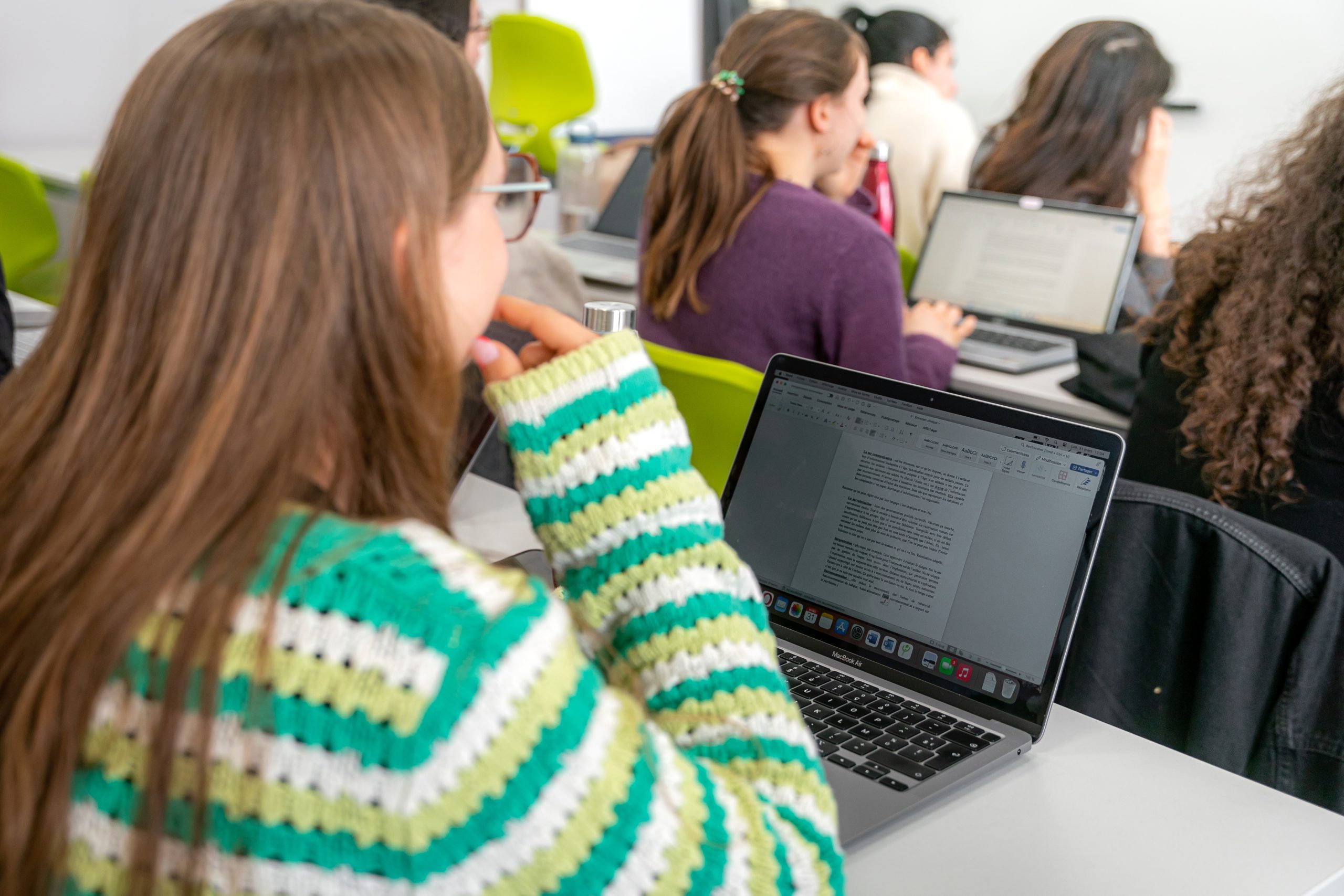Psychology Research Team and Academic Collaborations
In order to further its ties with the academic world, improve the quality of its teaching and learning, and play an active part in producing psychology-related knowledge, EPP has established a psychology research team comprising a group of research professors based in Paris and Lyon.
In partnership with laboratories accredited in psychology or related sciences – the Catholic University of Paris EA 7403 research team, the CNAM (French higher educational establishment) EA 4132 research team, and the University of Lorraine’s UMR 1319 joint research unit – the members of the ‘Vulnerability, Capability, and Recovery’ research team focus on ethics and psychological care in relation to disability, trauma, and persistent pathologies.
Initiating research is also a means for EPP to build stronger connections between theory and practice in its teaching methods. The research professors work alongside lecturer-practitioners to develop applied research and stay connected to the realities of the field. The methodology taught during the fourth and fifth years, in relation to qualitative and quantitative research for dissertations, is designed with the research team so as to further improve the quality of master’s dissertations and encourage budding students to pursue careers in research. The connections made with academic partners therefore makes it easier for interested students to go on to complete a PhD.
Latest news
Take a look at the various research newsletters presenting the research team’s publications (in French):
Lettre d’information de la recherche – N°14 – Janvier 2025
Lettre d’information de la recherche – N°13 – Septembre 2024
Lettre d’information de la recherche N°12- Mars 2024
Lettre d’information de la recherche N°11 – Décembre 2023
Lettre d’information de la recherche N°10 – Juin-juillet 2023
Lettre d’information de la recherche N°9 – Mars 2023
Lettre d’information de la recherche N°8 – Décembre 2022
Lettre d’information de la recherche N°7 – Juin 2022
Lettre d’information de la recherche N°6 – Mars 2022
Lettre d’information de la recherche N°5 – Décembre 2021
Lettre d’information de la recherche N°4 – Juillet 2021
Lettre d’information de la recherche N°3 – Mars 2021
Our research professors :

Élodie Barat
N°ORCID : 0000-0003-2418-2171

Fanny Marteau-Chasseriau
N°ORCID : 0000-0002-6229-4070

Anne-Laure Poujol
N°ORCID : 0000-0003-0043-7475

Éric Binet

Charles Martin-Krumm
N°ORCID : 0000-0002-6665-5566
Pr. Charles MARTIN-KRUMM (Directeur de l’équipe VCR)
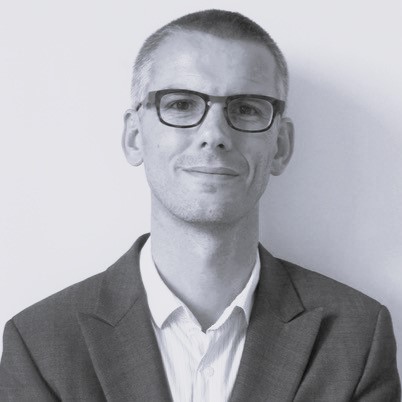
Lionel Strub
N°ORCID : 0000-0002-3513-8953
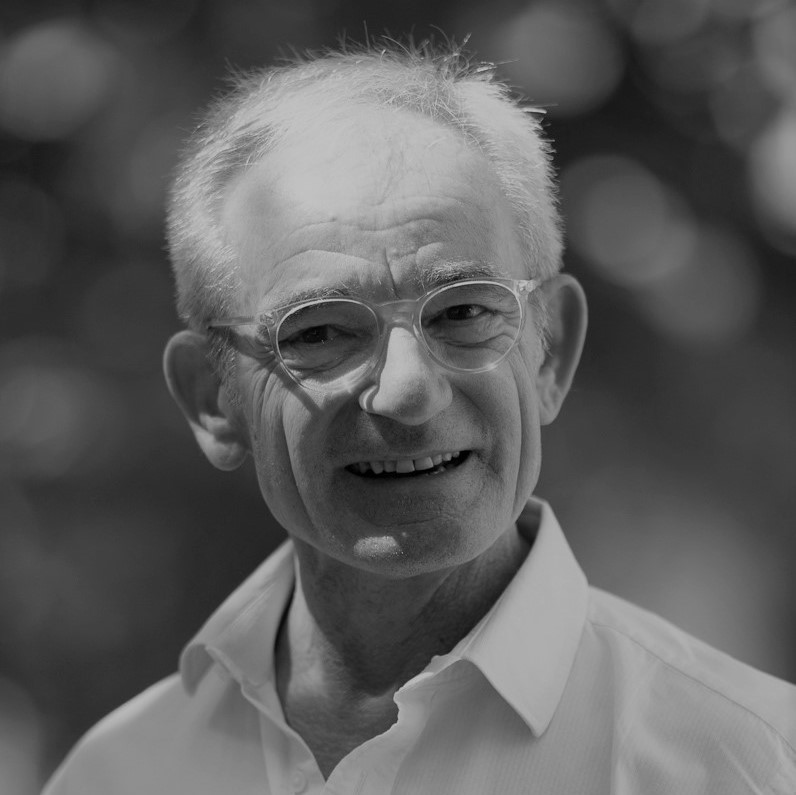
Christian Heslon
N°ORCID : 0000-0002-5713-2341

Mathilde Moisseron-Baudé
N°ORCID : 0000-0003-0841-9191

Guillaume Tachon
N°ORCID : 0000-0003-2364-5285

Tristan Le Chevanton
N°ORCID : 0000-0003-0342-9075
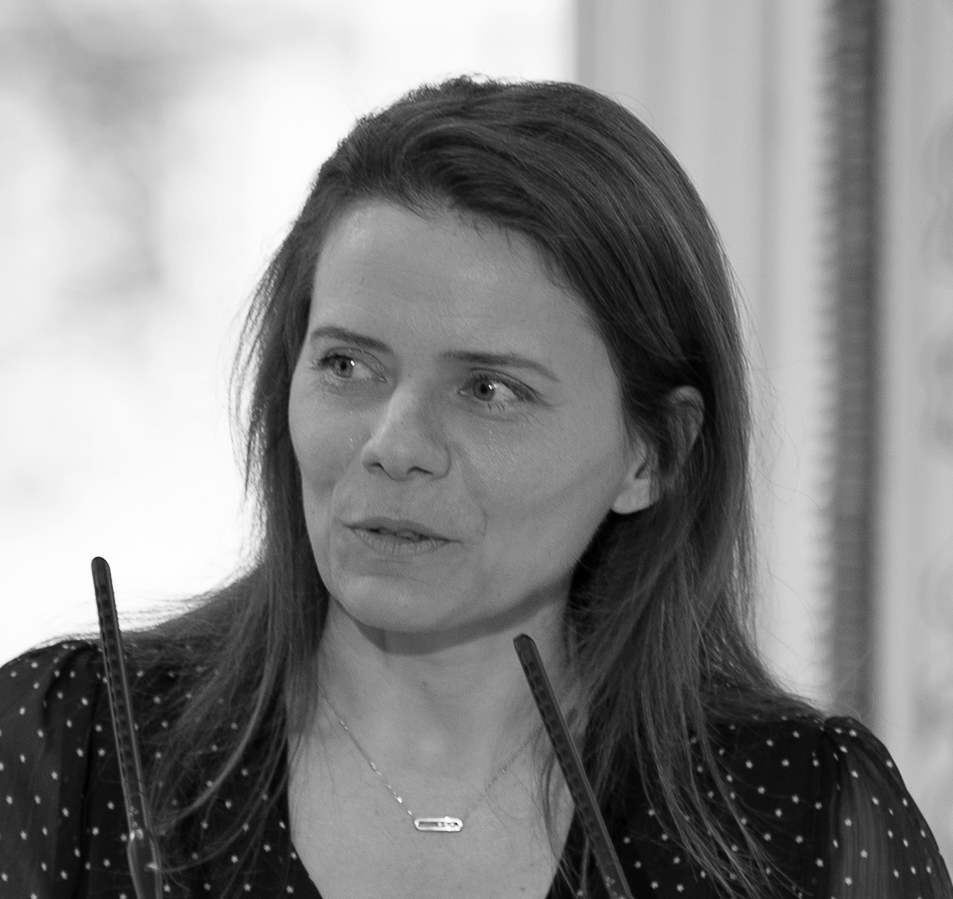
Anne Plantade
N°ORCID : 0000-0001-8695-7871

Marion Trousselard
N°ORCID : 0000-0003-0592-4547
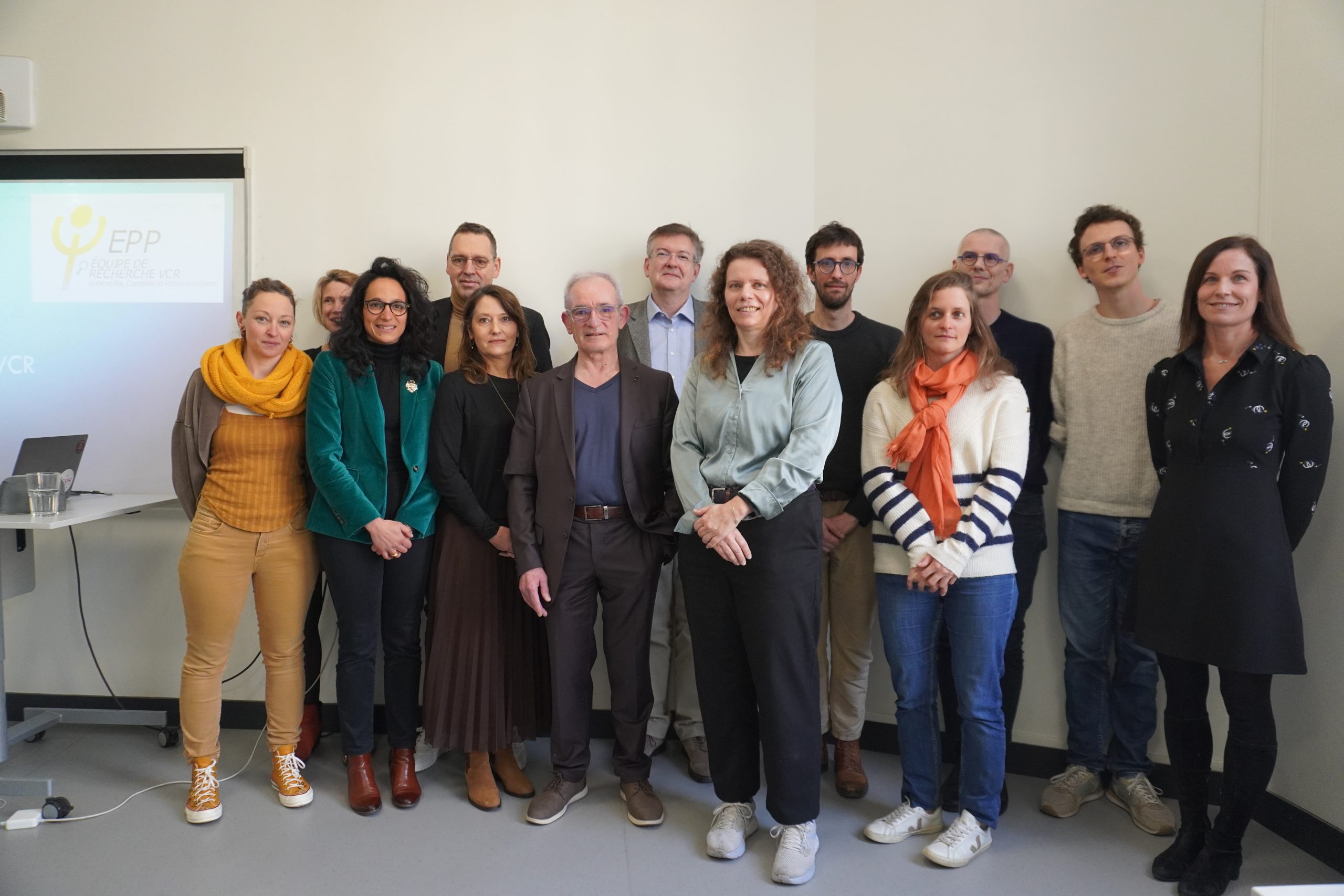
Team name: Vulnerability, Capability and Recovery (VCR)
The concept of vulnerability burst onto the academic scene thirty years ago, helping us to name and understand a range of phenomena as varied as the growing sense of physical, mental and social vulnerability in western societies, and deepening social inequalities. The polysemy of the term and its axiological ambiguities require rigorous epistemological reflection.
The research professors at EPP approach this issue of vulnerability as a potential source – despite the limitations inherent in its very meaning – of empowerment and quality of life. It is therefore a question of breaking free from an epistemology of limitation, and focusing research on personal and environmental resources.
Indeed, health can not be defined merely as the absence of disease or infirmity, but rather as a state of complete physical, mental and social well-being’ (WHO, 1946, 1948: 100). Good health has an impact on people’s quality of life, enabling them to fulfil their creative potential and enjoy all their personal, social and environmental resources. A satisfactory quality of life can therefore be achieved when a person is able to exercise their capabilities (Sen, 1984), i.e. a context in which they are able to be what they want to be and do what they want to do, in accordance with their functionalities and resources.
The latter include all the means a person has at their disposal to enjoy daily life, as well as to cope with it when necessary. Every individual needs to be able to draw on: physical resources, for example if they wish to pursue a profession that requires such resources; physiological resources, for example to do sport, or cope with illness; social resources, for example the ability to seek help from those around you; and psychological resources, such as resilience, information processing, decision making and coping skills.
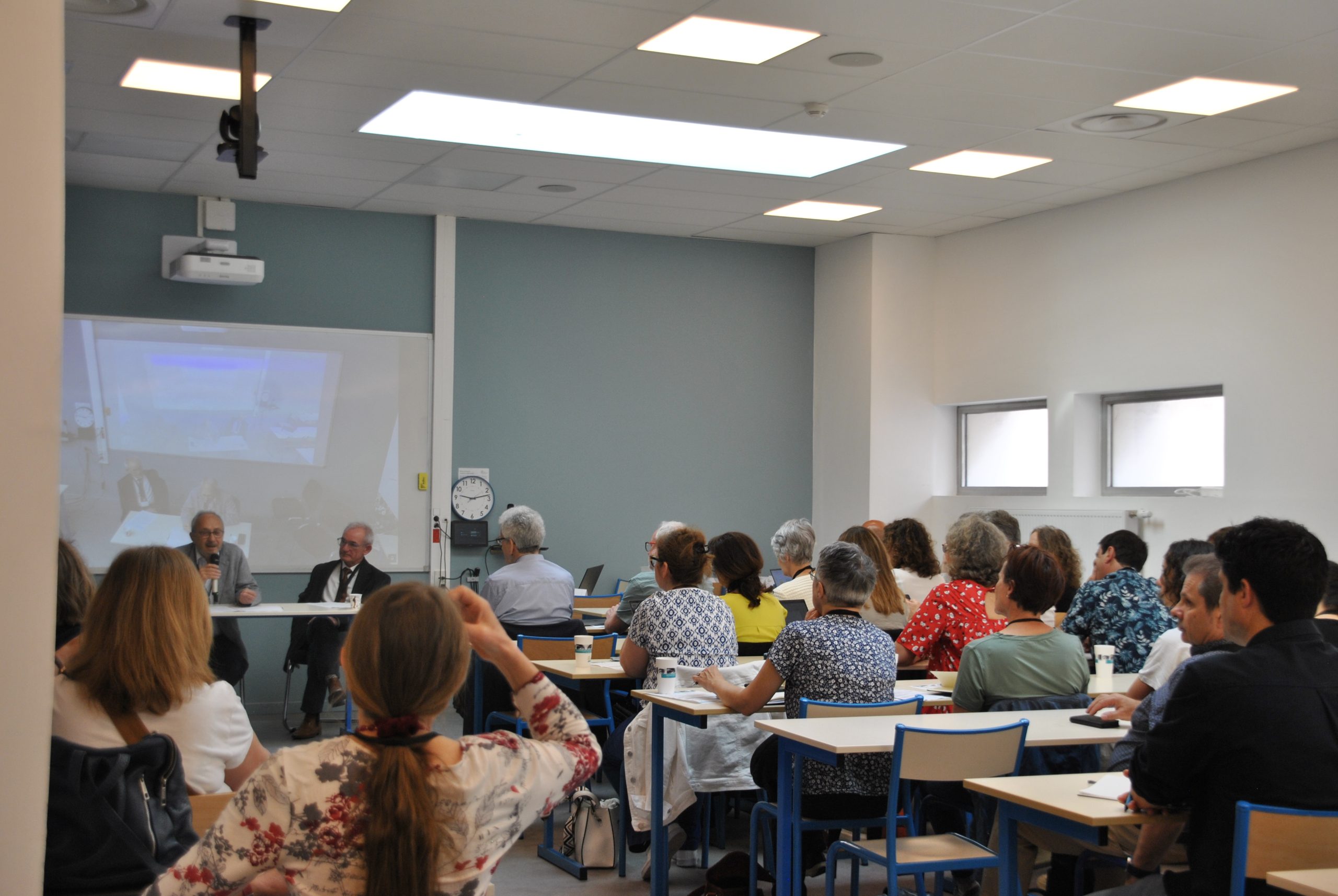
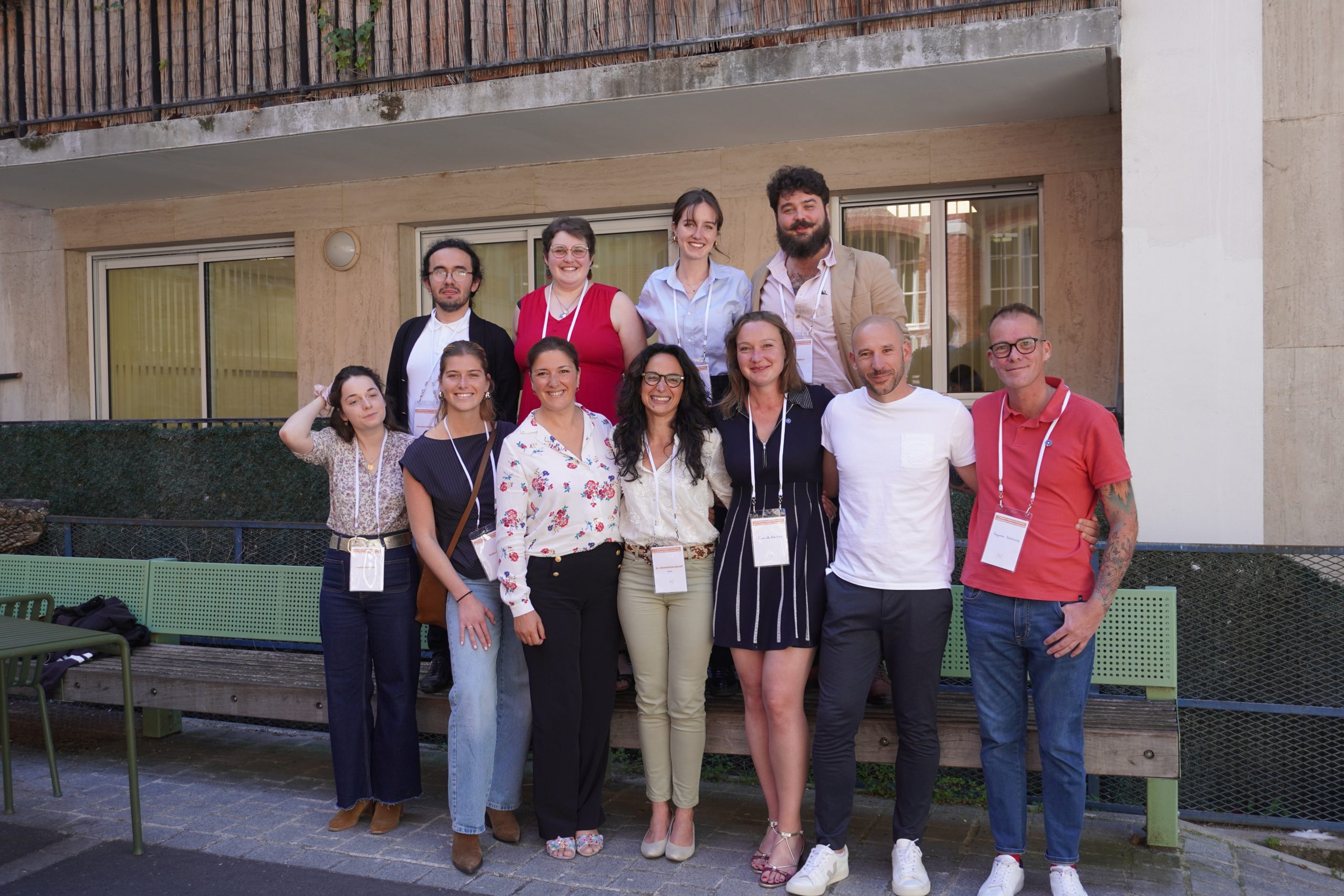
A person’s ability to apply their skills in the workplace, but also get involved in projects which go beyond the personal level, such as community projects, contributes to quality of life. In return, this also helps them to develop their resources.
While psychology research professors are perhaps more inclined than those from other disciplines to question the conditions underpinning their expertise, the EPP professors’ research work encompasses approaches to capabilities and quality of life with an ethical focus, in line with the Ricoeurian definition – ’a good life, with and for others, within just institutions’ (Ricœur, 1990, p. 202). This may be in a clinical context (for example ethical issues in clinical research involving people with intellectual disabilities, research on end-of-life patients in intensive care, issues around implementing cognitive remediation programmes for schizophrenic patients) or a corporate context (quality of life at work, psychosocial risks).
For several years the concept of vulnerability has been the focus of the ‘Ethics, Morals and Institutions’ research unit within the EA 7403 research team at the Catholic Institute of Paris, although these activities are set to broaden to address new topics, especially that of authority and its institutional regulation. This concept of vulnerability is nevertheless closely related to the new topic being addressed by the unit: authority, ‘a force that generates social bonds and tends to grow towards its fulfilment’ (Fessard, 1944, p13). It is therefore linked to the social aspect of existence, to the need for protection and regulation to which it gives rise, as well as to the enhancement (from the term’s etymological roots) of the ‘authorship’ of individuals and their empowerment in a socially legitimised context.
In November 2018, three new EPP research professors were elected permanent members of the EA 7403 research team. In addition, in September 2018 they each joined the EA 4360 APEMAC Health Psychology and Public Health Medicine research team at the University of Lorraine. In this capacity, they will be involved in joint research projects with this team, which is looking to open up its research to the crucial issues of psychological recovery, the ethics of practice, as well as personal and social vulnerabilities.
In 2022, several new researchers joined the VCR research group. They are: Professor Christian Heslon, who is also EPP’s Chancellor, Mathilde Moisseron-Baudé, and Lionel Strub. The latter two researchers are occupational psychology experts.
